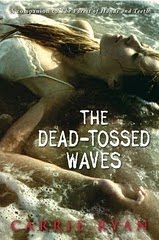We are delighted to feature a guest blogger this morning. Jim Warner submitted a two-part article on a topic near and dear to all aspiring authors: Rejection.
Part 1: The Blues
Reject

ions. They’re the bane of every aspiring author.
They come in the form of polite form letters or emails, sometimes personalized, sometimes with the dreaded “Dear Author” at the top. Your query was unsuccessful. You’ve been bounced, declined, rejected, or fireballed. Maybe it’s your first, or maybe you’ve got so many of the damn things your file cabinet is a fire hazard. No one likes being told they weren’t right for an agent or publisher. It always stings. But sometimes, it hurts.
When it does, you’ve got the rejection blues.
Maybe you’ve got past the query phase. Maybe you got a request for a partial or full. You got your foot in the door. Someone thought enough of your project to read more. Maybe your hopes were sky high, you thought you were going somewhere, you’re on your way to seeing your name in bold type on a book cover.
Then the letter comes.
“In the end,” the letter says, “I thought it wasn’t up to our standards.” Or they didn’t have enough enthusiasm. Or they liked it and they just didn’t think they could sell it. If you’re like most writers, you can probably add a dozen other taglines to this litany.
A rejection at that phase really smarts. You wonder, “What did I do wrong? Was the writing that bad? What could I have done differently?”
You’ve got the rejection blues.
The other day, I was reading the comments page on a particular agent on this very website, and a woman mentioned that she just didn’t feel like it was worth writing anymore. I don’t know why she felt that way. Perhaps she’d taken one hit too many, read one too many lines like, “Thanks, but no thanks.” Or, “This is not for me.” I won’t put words in her mouth, but I know one thing for certain.
She’s got the rejection blues.
I bet you get them too. But don’t be alarmed. I know a cure for the blues.
In music, there are various techniques for getting out of a blues scale. You can transition from a minor key to a major one, or resolve a diminished chord into a perfect fifth, or change modes. As a writer dealing with the rejection blues, you have to do much the same thing. You have to keep your chin up.
Changing keys while playing a song is not always easy. It can be a tricky compositional problem, and it’s hard to do well. As a writer, dealing with rejection is also difficult. But you have to keep the faith. You have to learn how to handle it.
Because, if you’re going to break into the publishing business, you’re going to take a lot of hits. You have to find a way to deal with rejection. It’s a personal thing, much like the act of writing itself. What works for you may not work for me, and what works for me may not work for you. Worse, what works for you may not work for you next week.
But you still have to learn to change keys. In my next post, I’ll give you some ideas on how to do just that.
* * *
Jim Warner turned to writing fiction after he discovered that there were no jobs available for an intergalactic spice smuggler. He's sold everything from liquor to luggage, worked in academic and public libraries, and has composed over a hundred pieces of music. In college, he majored in American history and anthropology. He has completed six novels, including four urban fantasies, a horror piece set in Dark Age Paris, and a science fiction/mystery thriller.
Part 2 of Jim's Rejection Blues will be posted tomorrow. Thanks again, Jim, for sharing your time and talent with us.
 In Part I, we talked about the pains of the Rejection Blues. Maybe you’re contemplating giving up. Maybe you’re angry and thinking about doing something really stupid, like flaming agents and the publishing world on your website. But these are negative responses, the wrong notes on the blues scale. You need to get back on key. Here are some constructive ideas.
In Part I, we talked about the pains of the Rejection Blues. Maybe you’re contemplating giving up. Maybe you’re angry and thinking about doing something really stupid, like flaming agents and the publishing world on your website. But these are negative responses, the wrong notes on the blues scale. You need to get back on key. Here are some constructive ideas.

 ions. They’re the bane of every aspiring author.
ions. They’re the bane of every aspiring author.


